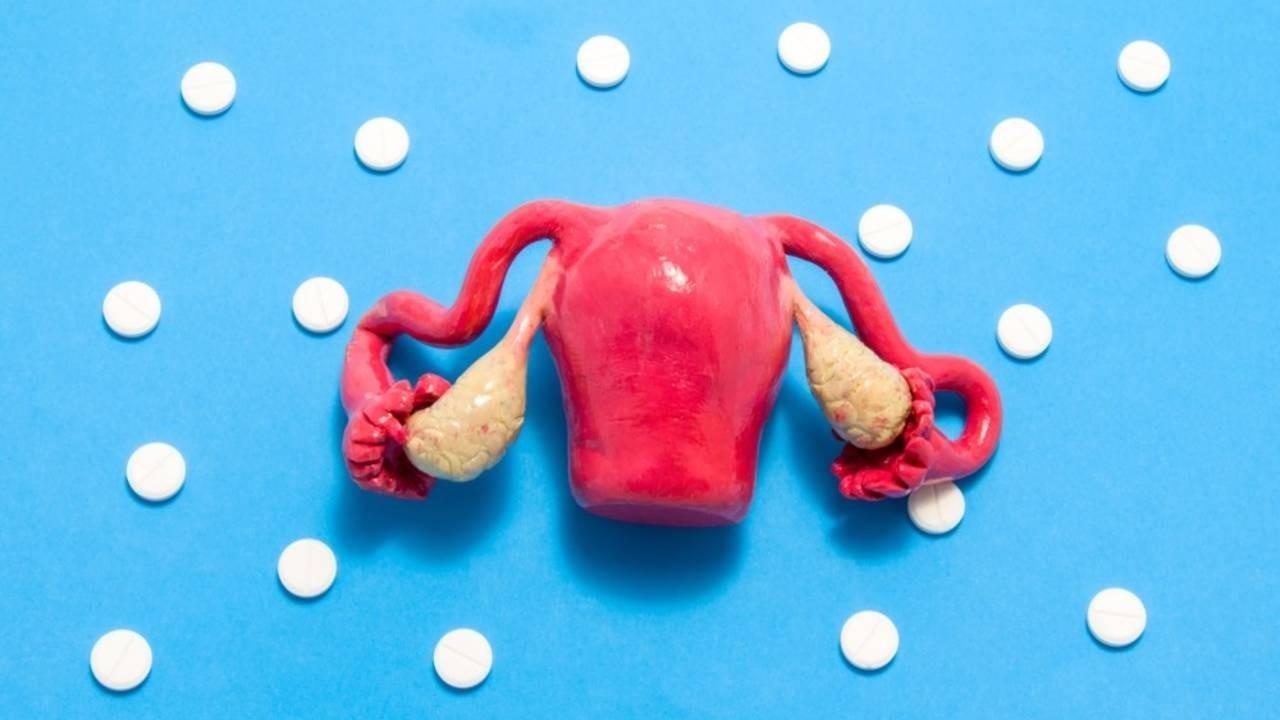Endometrial Hyperplasia and Menopause

Endometrial hyperplasia is common in peri-menopause. It's simply an abnormal thickening of the uterine lining or endometrium. It is not cancer but in some cases, it can increase your risk of later developing uterine cancer.
But I'm getting ahead of myself, let's go back to basics.
Your endometrial thickness changes in response to hormones. In a fertile woman, estrogen is the dominant hormone in the 1st part of the cycle. Estrogen is a growth hormone, think back to puberty, its the reason your breasts and hips grew. Estrogen also thickens your endometrium. Once you ovulate, your progesterone levels start to climb, progesterone is needed for the final stage of endometrial preparation for implantation of a fertilised egg and to maintain pregnancy. If pregnancy doesn't occur, menstruation is triggered by falling progesterone levels. Menstruation is a reset, your lining sheds and the cycle is ready to start again.
In peri-menopause, you are not regularly ovulating and it's from the act of ovulation, that the corpus luteum is formed from where the egg ruptured from the ovary. And it's the corpus luteum that produces progesterone. No ovulation, no corpus luteum, and no progesterone. Now the unopposed estrogen is left to continue growing the lining - and endometrial hyperplasia occurs.
Common signs include:
- a heavier and/or longer bleed
- shorter cycles
- any bleed post menopause
If you are experiencing any of these see your doctor and ask for a transvaginal ultrasound. If your lining is thick they should take a biopsy at the same time. Your results will either be:
- simple or complex - these are low risk, its about 1.6% chance of these developing into cancer
- atypical simple or complex - these categories have abnormal cell changes, but they don't invade into the surrounding connective tissue which is a defining characteristic of cancer. Although in the long run, if not treated about 22% of them may develop into cancer.
Treatment options include:
- Monitoring
- Progesterone treatment
- Surgery - partial or complete hysterectomy
With all of these options seeing a naturopath at the same time can help to improve your outcomes.
If you are given the option of monitoring or trially progesterone I would support your treatment in these ways, to give you the best chance of keeping your uterus
- Improving hormone balance. I want to increase estrogen metabolism and clearance. While optimising progesterone and SBHG production. A few key nutrients I use include DIM, Calcium d- glucuronate, sulforaphane, zinc, flaxseeds.
- Optimising your digestive function and health of your estrobolome. Estrobolome is a collection of digestive microbes that regulate the circulation and excretion of estrogen. They do this by producing beta-glucuronidase. You can test your glucuronidase levels in a GI map stool test. A healthy digestive system requires lots of fibre, fresh fruit, vegetables, salads, and flaxseeds! I like flaxseeds as they are a fibre and a phytoestrogen. Phytoestrogens are plant-based estrogen-like substances that are similar in structure to estrogen and can weakly bind onto estrogen receptors and this effectively reduces the number of available receptors. FYI Flaxseeds can also increase the amount of SHBG (sex hormone-binding globulin) this binds to estrogen and makes it inactive.
- Reduce your menstrual flow. Key herbs to reduce heavy periods are called uterine astringents. You will need to see a naturopath or a medical herbalist to prescribe you a formula. Common herbs I like to include are yarrow, lady’s mantle, shepherd’s purse, or squaw vine.
- Considering the amount of blood lost I would also look at prescribing key blood-building nutrients such as iron, vitamin C, vitamin B12
- Address and reduce inflammatory markers. Inflammation alone is a risk factor for developing uterine cancer. Dietary changes are needed. One of the most inflammatory foods is SUGAR! You need to move away from a processed diet and towards an anti-inflammatory real food diet.
- Lose weight if appropriate. Your risk of developing endometrial cancer increases exponentially with your weight.
- Certain diseases encourage endometrial hyperplasia. If you have imbalanced blood sugar levels or diabetes, this is essential to get on top of. Other linked health conditions include poor gallbladder health and thyroid disease.
- Optimising your anti-oxidant status. On a fun note, the antioxidants from coffee have been found to be protective against uterine cancer.
- Support in quitting smoking if you are a smoker.
- Achieving and maintaining optimal physical activity.
- Assessing and removing xenoestrogens (environmental estrogen-like substances) as they contribute to being in an estrogen dominant state. Hormone Disruptive Chemicals
You can see there is so much work to do! Please don't try to do this on your own. I offer a complimentary call if you would like to discuss this with me and see if you would like to work together.
Finally, if the outcome is surgery. I'm not going to try to talk you out of it. I'm going to use the time you have prior to surgery to set you up for the ultimate success, not just the best surgery outcomes but a speedy recovery as well. This is especially important if you are having a complete hysterectomy as you will become menopausal instantly.
Don't delay in reaching out if this is you. Ideally, we would have 2-3 months to work together but this is hardly ever the case, even 2 weeks preparation is better than none.
We do the best we can with the time available.


